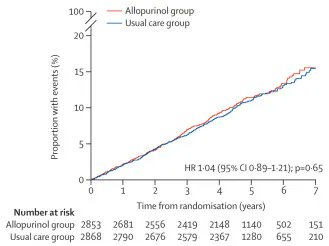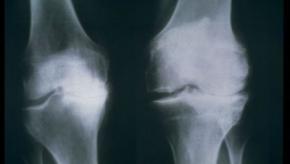All News
2022 ASAS-EULAR Guidelines for Axial Spondyloarthritis
Assessment of SpondyloArthritis international Society (ASAS) and EULAR have published their 2022 update and recommendations for the management of axial spondyloarthritis (axSpA).
Read ArticleACR Award Winners (10.21.2022)
Dr. Jack Cush reviews the news and journal reports from the past week on RheumNow.com. Highlighted discussion of implantable stimulators, urine proteomics and gut-immune responses to Prevotella in RA.
Read ArticleVaccination Cut Long COVID Risk for Rheum Patients
Patients with rheumatologic conditions who developed breakthrough COVID-19 infection after vaccination were less likely to suffer long-term symptoms than unvaccinated but otherwise similar patients, researchers said.
Read ArticlePregnancy Outcomes with Belimumab
Pregnancy in systemic lupus erythematosus (SLE) is fraught with problems of adverse pregnancy outcomes, more pregnancy loss and birth defects. Now a study of SLE pregnancies exposed to belimumab (BEL) shows and expected rate of pregnancy loss but a variable rate of birth defects.
Read ArticlePrevotella Immune Response in Both Pre-Clinical & Established RA
In a recent analysis published in Arthritis & Rheumatology, people at risk for rheumatoid arthritis (RA) and those with the disease had elevated blood levels of antibodies against a Prevotella copri (Pc).
Read ArticleMiners Face Increased Risk of Rheumatoid Arthritis
Add "hard rock" mining to the list of occupations associated with high rates of rheumatoid arthritis (RA), a new study indicated, with silica exposure the presumed malefactor.
Read ArticleCRTAC1- a Novel Biomarker for Osteoarthritis
Scientists at deCODE genetics a subsidiary of Amgen report in Arthritis & Rheumatology that a novel plasma protein (cartilage acidic protein-1; CRTAC1) is a potential biomarker of osteoarthritis (OA) through its association with OA risk and progression to joint replacement.
Read ArticlePrimer on Clinical Trials
In this week's special podcast, Dr. Jack Cush offers a primer on rheumatology clinical trials, answering the question: should you be involved in research and clinical trials in rheumatology?
Read ArticlePredicting Cardiovascular Events in SLE
A study from the Georgia Lupus Registry shows that systemic lupus erythematosus patients are at greatest risk for cardiovascular disease events between years 2 and 11 after diagnosis and higher in Black people or those with a discoid rash.
Read ArticleSecond Efforts in Treating RA Partial Responders
The results of a treat-to-target (T2T) combination therapy trial in patients with early rheumatoid arthritis (RA) show that if patients fail to respond initially, then a second, more intensified regimen can turn initial nonresponders into responders.
Read ArticleACR Announces 2022 Award Recipients
The American College of Rheumatology (ACR) and the Association of Rheumatology Professionals (ARP) proudly recognizes the recipients of its 2022 Master of the ACR and ARP designations, ACR Awards of Distinction, and ARP Awards of Merit and Appreciation.
Read ArticleGood Outcomes with TNF Blocker Use During RA Pregnancies
A prospective cohort study of treatment and pregnancy outcomes in women with RA shows that TNF inhibitor use during pregnancy did not increase the risk of adverse pregnancy outcomes, but instead led to more positive outcomes such as fewer low-birth-weight deliveries.
Read ArticleNo Special Heart Risk With JAK Inhibitors, Study Finds
Patients taking Janus kinase (JAK) inhibitors for rheumatoid arthritis experienced similar cardiovascular outcomes as those using the tumor necrosis factor (TNF) blocker adalimumab (Humira), analysis of French national registry data indicated.
Read ArticleIntravenous Immune Globulin in Dermatomyositis
Few drugs have been studied well in the treatment of dermatomyositis (DM) and only recently has intravenous immune globulin (IVIG) been granted FDA approval for the treatment of DM, based on this pivotal trial.
Read ArticlePhysician Burnout Rising
The NY Times has reported results of a study showing that nearly two-thirds of doctors are experiencing at least one symptom of burnout, with a marked increase since the onset of the pandemic. These findings suggest that burnout rates amongst US doctors have risen to alarming levels.
Read ArticleRheumatology Salaries and Career Choices
A recent doximity report shows how rheumatology salaries increase by years in practice. Their salary estimates are based on Doximity acquired data from over 200,000 physicians, along with publicly-available career and salary data from the U.S. Bureau of Labor Statistics, the U.S.
Read ArticleWomen Doctors More Likely to Be Called By First Name in Patient Messages
Female physicians were more likely to be called by their first names in electronic medical record (EMR) patient portal messaging, researchers found.
Read ArticleOrthopedic surgery patients do fine without opioid painkillers
Hamilton, ON (Oct. 4, 2022) – Patients can recover from orthopedic surgery just as well without using opioid-based painkillers, says a McMaster University and Hamilton Health Sciences (HHS) study published by the Journal of the American Medical Association (JAMA).
Read ArticleTransitioning JIA to Adult Care is Problematic
Juvenile idiopathic arthritis (JIA) may start in adolescence and extend into adulthood.
Read Article
Links:





















